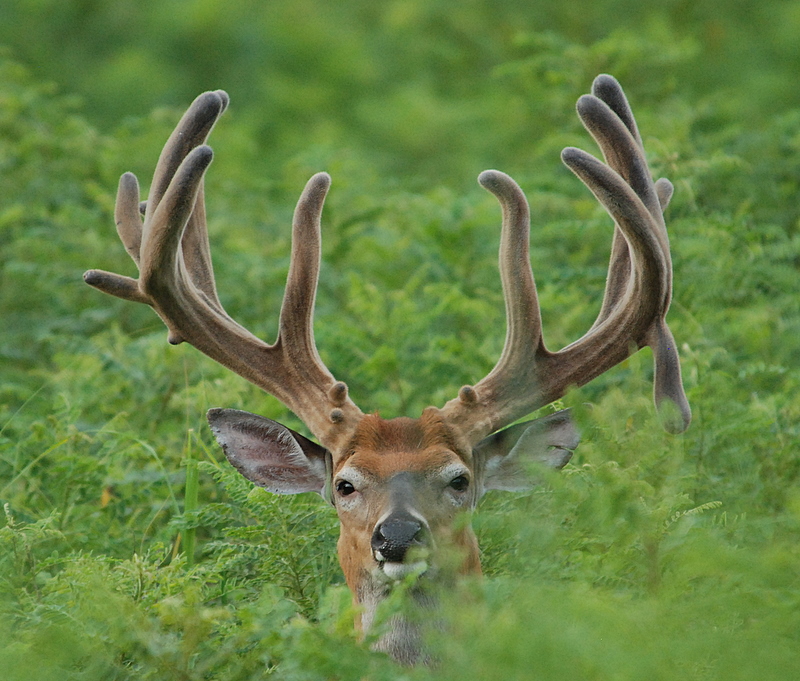The Pennsylvania Game Commission announced the creation of a new chronic wasting disease management area earlier this month, and the expansion of two current DMAs. As a result, the National Deer Association called on Wednesday for the full authority of Pennsylvania’s captive deer shooting facilities to be transferred to the PGC.
“Of the seven disease management areas we have in the state, five of those have been started because of CWD being found in a captive facility,” says Kip Adams, NDA’s chief conservation officer. “Every time we have one of those, there are literally tens of thousands of hunters who are negatively impacted and there are wild deer that are negatively impacted.”
Currently, the Pennsylvania Department of Agriculture oversees these facilities and each of them must be included in the PDA’s herd monitoring program. The primary function of this program is to watch for CWD. In addition to this mandatory program, there’s a more thorough voluntary herd certification program.
The state of Pennsylvania has 723 captive shooting facilities. Of those facilities, 10 in the voluntary program and 25 in the mandatory program are now CWD-positive. Of those 35 captive facilities with instances of CWD, 18 still have deer on them.
The NDA calls this “completely unacceptable from a disease management standpoint.” The Association makes the case that the mismanagement of these herds poses a threat to Pennsylvania’s wild deer population.
The NDA says the PGC has the resources, staff, and expertise necessary to properly manage the situation. Adams referenced the $1.6 billion that hunting contributes to the state economy each year as a clear indicator of why this is an important issue to tackle not only for hunters, but all Pennsylvania residents.
“For the breeding facilities that are in Pennsylvania, the Department of Agriculture is better to oversee those, we agree with that,” says Adams. “But as far as the shooting side, the Game Commission has the biologist and law enforcement staff so they can better enforce the regulations for [captive deer shooting facilities].”
Adams called this a legislative issue. The Pennsylvania Game Commission used to oversee captive deer shooting facilities in the state, and the legislature placed the authority of these facilities in the Department of Agriculture’s hands.
“At that time, the Department of Agriculture did not want it,” says Adams. “They knew they didn’t have the enforcement ability or the biological staff to handle the shooting facilities. It was a political issue and it was much better regulated by the Game Commission and legislators are the ones who can fix that issue.”
Proper management of these facilities will help with the spread of CWD. Many of the cases originate from captive deer shooting facilities. When asked why the NDA didn’t come out against captive deer shooting facilities in general, Adams said the association has a clear stance on them.
“We have a position statement where we oppose those,” says Adams. “We have publically come out against those.”
The statements on the NDA’s website say deer should be classified as wildlife so they can be managed by state and provincial wildlife agencies. It also states that it is against deer farming and captive propagation of deer as well as canned hunting practices. However, the NDA’s statements do allow high fence operations as long as hunters aren’t given an unfair advantage and the animals have “a reasonable opportunity to escape the hunter.”
“Limiting the spread of CWD is the name of the game right now,” says Adams said. “If Pennsylvania Game Commission oversaw the shooting facilities, they could do a better job of helping to limit that spread.”
